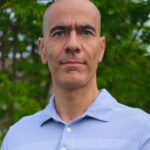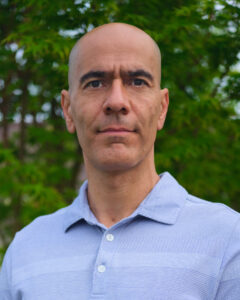I was a very early adopter of podcasts. I distinctly remember, maybe in the early 2000s, not understanding what a podcast was and then stumbling across The Partially Examined Life, a philosophy podcast led by three “guys who originally wanted to do philosophy for a living, but then thought better of it.” Incidentally, I’ve been a guest on several podcasts including The Partially Examined Life. I considered myself a podcast junkie. I mostly listened to philosophy, social/political, and health related podcasts. I was a 1.5x speed kind of person for optimal efficiency and absorption.
Over the decades, I suppose I learned a lot from podcasts; plenty of facts and all the “sides” to stories. Very little of those things seem to matter to me now. There is only one podcast that I will always cherish, which is S-Town. It’s a story about a man who ends his life in his 40s. He wrote a suicide note that I consider one of the most beautiful pieces of writing I’ve ever read. For me, it’s like a song I can never get out of my head. When you read it, think of a simple melody and a drum beat to accompany it. It goes like this:
I have not lived a spectacular life. But within my four-dozen-plus years, I’ve had many more hours to pursue that which I chose, instead of moiling over that which I detested. I have coaxed many infirm clocks back to mellifluous life. Studied projective geometry, and built astrolabes, sundials, taught myself 19th-century electro plating, bronzing, patination, micro-machining, horology, learned piano. Read Poe, De Montpasa, Boccaccio, O’Connor, Welty, Hugo, Balzac, Kafka, Bataille, Gibran, as well as modern works by Mortimer, Hawking, Kuntsler, Klein, Jacoby, Heinberg, Hedges, Hitchings, and Rhodes. But the best times of my life I realize were the times I spent in the forest and field. I have walked in solitude beside my own babbling creek, and wondered at the undulations, meanderings, and tiny atolls that were occasionally swept into its midst. I have spent time in idle palaver with violets, lyre leaf sage, heliopsis, and monkshood. And marveled at the mystery of monotropa uniflora. I have audited the discourse of the hickories, oaks, and pines, even when no wind was present. I have peregrinated the woods in winter, under the watchful guard of vigilant dogs, and spent hours entranced by the exquisiteness and delicacy of tiny mosses and molds: entire forests within a few square inches. I have also run thrashing and flailing from yellow jackets. Before I could commence this discourse, I spent a few hours out under the night sky reacquainting myself with the constellations, like old friends. Sometimes I just spent hours playing my records. Sometimes I took my record players and CD players apart just to peek inside and admire the engineering of their incongruous entrails. Sometimes I watched Laverne and Shirley, or old movies, or Star Trek. Sometimes I sat in the dark and listened to the creaking of the old house. I have lived on this blue orb now for about 17,600 days. And when I look around me and see the leaden dispiritedness that envelops so many persons both young and old, I know that if I die tonight, my life has been inestimably better than that of most of my compatriots. Additionally, my absence makes room, and leaves some resources for others, who deserve no less than I have enjoyed. I would hope that all persons reading this can enjoy some of the aspects of life that I have enjoyed, as well as those aspects that I never will, and will take cognizance of the number of waking days he has remaining, and use them prudently. To all that have given so much, much love and respect,
John B. McLemore
I live in Southern California and I’ve commuted over an hour one way to my job as professor in the art department at UC Riverside for about 25 years. During the vast majority of those commutes, I have listened to podcasts. But, suddenly, and literally like a lightning strike, that changed. In the middle of the night on September 2nd, 2023, I was temporarily and violently woken with a grand mal seizure and then I passed out. The right side of my body stiffened like it was being electrocuted by 240 volts. Here’s where I cut out all the details of a long and complicated story. The conclusion is that I have a brain tumor and am now epileptic and will be for the rest of my life.
When I returned home after a week in the hospital, barely able to walk even with the aid of a walker, I tried to return to my “normal” life. Most things very gradually fell into place. I slowly started to exercise and diet the way I did before “THE SEIZURE.” But one very noticeable aspect of my life changed. I had lost complete, and I mean complete, interest in listening to podcasts. However, I had become fervently and simultaneously more interested in listening to (and playing) music. What changed? Was it my brain? The tumor is not located in an area that would suggest any connection to language. I still read books about the same amount as before. My best guess is that my life priorities changed. This part of the story is nothing new, I suppose. This is not the first or last existential crisis.
What I think is unusual and worth sharing is that I became not only uninterested in podcasts but disgusted by even the thought of them. I was repulsed by the hosts’ voices, the rote business model, the idea of “audience capture,” and the incestuous recycling of guests. It seemed like a complete waste of whatever time I have left to use my aural capacities. Another factor that really got under my skin was the hypocrisy. Most of the podcasts I enjoyed seemed idealistic and postured a sort of objectivity. I witnessed that idealism crumble and rot before my eyes in October of the same year. I’ll leave it at that.
On the other hand, there was music. Muuuuusiiiiiiic. I just like saying the word. I fell deeply in love. I’ve always loved music, but my interest in it blossomed. I even fulfilled a long-time dream of forming a band. We are called Ötillie. I imagine in my defective mind a teeter-totter with a cute, plump kid who represents podcasts weighing down one side of the see-saw (for decades.) But now I have several scrawny kids who represent all the music I love and will love in the future joyfully jumping on the other side, on top of one another, tipping the balance. This feeling has only gotten stronger since September of 2023. I simply have no tolerance for podcasts. I’m sure you can learn about dopamine and its relationship to music from some podcast, but I’m just going to listen to and play music because it’s beautiful and uplifting and life-affirming and eternal.
This change has been so profound that I have recently converted a significant portion of my art studio to a music rehearsal space called A Forest (named after The Cure song). The space is designed not only for my band to practice, but to be rented to young, local bands in high school or even younger to practice, gain confidence, and even record. I plan to offer drum lessons to beginning drummers, and to host intimate karaoke parties.
In the last year or so, I have discovered so many bands that I likely missed out on during the years I was so heavily into podcasts, from the early 2000s onward. Two particular bands have made a deep impact on me. Carrissa’s Weird is one. And, Mount Eerie is another. Mount Eerie’s vocalist Phil Elverum wrote some of the most heartbreaking and raw albums I’ve ever listened to, dealing with his young wife’s early death from cancer. Music can have a strange effect on a person. It can make you weep but simultaneously want to turn up the volume. Perhaps because my disease is literally located in my brain, it has reminded me that the most important qualities of life are not so cognitive and intellectual, but ineffable and bodily, like the way music moves you.
Image via Flickr




